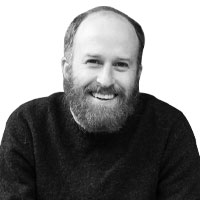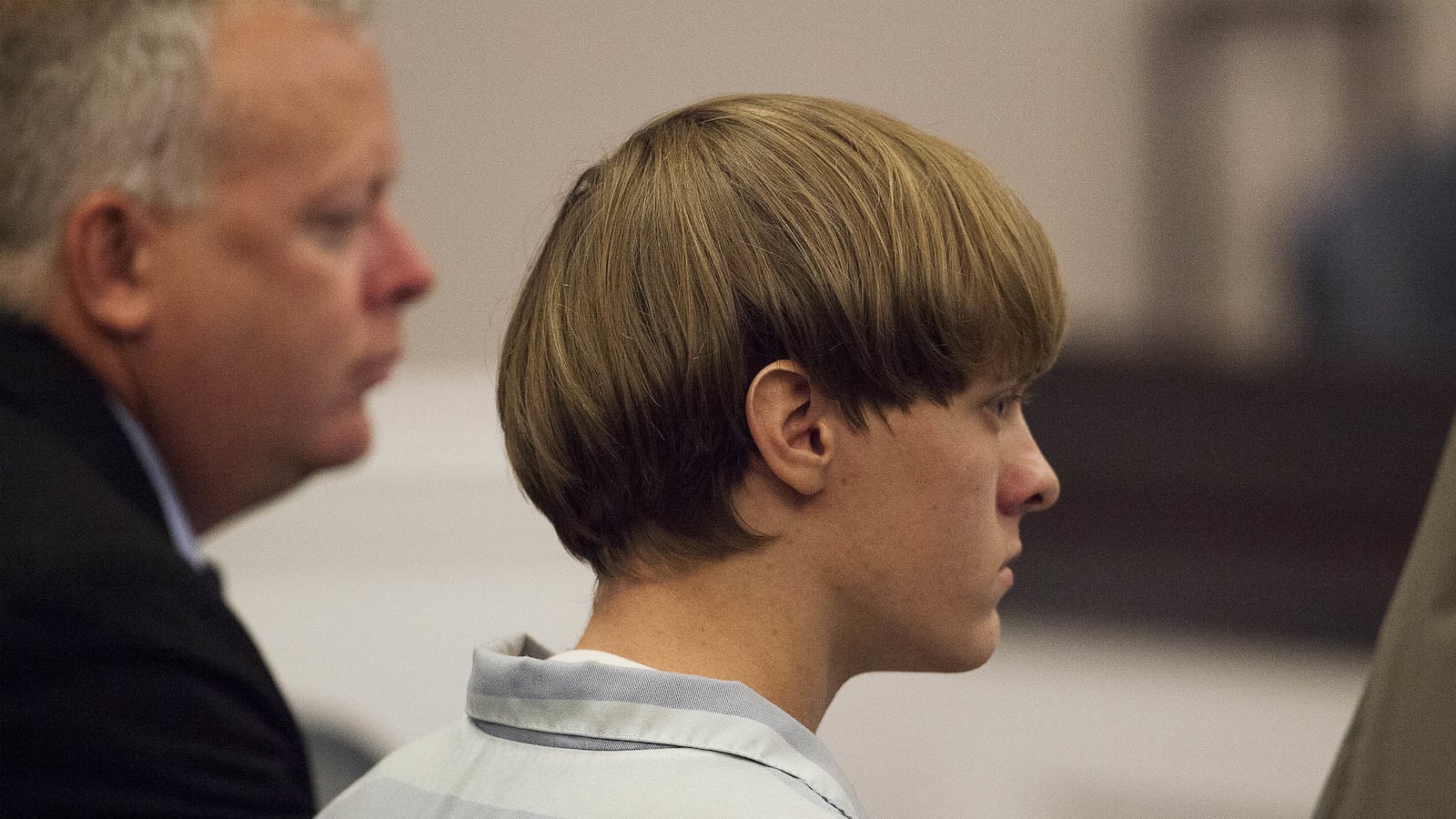CHARLESTON, South Carolina — Dylann Roof was convicted of one of America’s most notorious crimes on Thursday, found guilty of committing a massacre of nine black worshipers who had welcomed him into the basement of Emanuel A.M.E. Church.
Among a slew of mass killings in recent years, the bloodbath during a Bible study was notable for its setting; the brutal, racially motivated killings occurred suddenly within the hallowed walls of a historic, black Southern church. The crime was also notable for the contrast between the starkly racist views of its perpetrator and the kindness of his victims, who had offered Roof a chair and Bible as they began a weekly discussion on June 17, 2015.
Roof joined the group that warm evening for nearly an hour, laughing along with his hosts, all while he concealed a handgun and magazines of bullets in a pack around his waist. When the worshipers stood to pray, closing their eyes, Roof took the opportunity to open fire, quickly killing the majority of occupants in the room, starting with the pastor, Reverend Clementa Pinckney, who sat beside him. Three people survived, including one woman, Felicia Sanders, who described Roof as “evil, evil evil as can be” in testimony last week.
“There is no place on Earth for him except the pit of hell,” testified Sanders, who watched Roof murder her 26-year-old son, Tywanza Sanders, and eight others.
Jurors deliberated for two hours before convicting Roof of 33 charges, which included firearm crimes, religious obstruction crimes, and hate crimes. They will return to court in January to decide upon a punishment of life imprisonment or the death penalty. Roof, who stared ahead blankly throughout the entire trial, has elected to serve as his own attorney during this sentencing phase on January 3.
During closing arguments Thursday morning at the Charleston Federal Courthouse, Roof’s attorney David Bruck conceded his client shot and killed nine people for racially motivated reasons, but asked jurors to go beyond the grisly facts of the case and consider why Roof attacked the unsuspecting worshipers.
"There is something wrong with his perception,” said Bruck during closing arguments Thursday morning at the Charleston Federal Courthouse. "Look past the surface of things.”
When Roof discovered white supremacist ideology and conspiracy theories online, Bruck said, his client received a “magic decoder ring” that resolved the mysteries of the world.
He described Roof as a 22-year-old loner with no best friend. He is so detached he is unable to make small talk, said Bruck, who then drew the jury’s attention to photographs introduced during trial, some of which featured Roof holding a gun, posing with a Confederate flag or burning the American flag.
"None of the (photos) have a friend. None of them have another person,” said Bruck. “He was so alone… except there were hundreds of pictures of his cat”
“Does this make sense…?” said Bruck. “Or is there something more?”
Federal prosecutors countered that such arguments were mere distractions from the brutal murders of victims that ranged in age from 26 to 87, noting how the eldest of the victims, who walked with a cane, was shot at least ten times.
Time and time again, Assistant U.S. Attorney Nathan Williams spoke fiercely of the “vastness of hatred” contained within Roof, who published a racist manifesto and scribbled other racist writings that expressed sentiments like “Negroes have lower IQs” and “segregation was not a bad thing.”
Williams said the evidence showed Roof preyed on the most vulnerable type of people, choosing a massacre site that featured friendly strangers with no protection.
“[Roof is] a man of immense hatred who walked that room shooting person after person after person, stopping so he could only load a magazine and kill more people,” said Williams. “[He is] a person of tremendous cowardice, shooting people when they had their eyes closed, when they were in prayer, when they were wounded, when they were on the ground…”
Three people survived the shooting, including one woman who hid under a table and another, Felicia Sanders, who nearly smothered her granddaughter as they played dead and rubbed spilled blood on their bodies. The aftermath of the shootings resembled a scene from a horror movie, with lifeless bodies and blood spread across the floor beneath tables covered in white linen cloth.
“When this defendant walked out,” Williams continued, “an 11-year-old girl circled the floor in a state of shock, walking amongst her dead and dying family.”
After the shooting, Roof walked out of the church and drove away from Charleston, eventually reaching North Carolina, where he was arrested the next day.
He confessed his crimes to FBI agents, telling them he forwent killing any more black people at other sites not because he was remorseful but because he was simply “worn out.”
Regarding the massacre he did commit, Roof told agents he “had to do it,” and that he had hoped to spark a race war.
Bruck scoffed at his client’s rationale.
“On what planet does someone have to be to think you could advance a political agenda by attacking these nine people who are the most kind, upstanding — I will use the world noble — people you could possibly find in this community or any other,” Mr. Bruck told the jury in his opening statement last week. “Does it make any sense at all and, if not, what does that tell you?”
Continuing that train of thought on Thursday, Bruck poked holes in Roof’s logic and hinted at mental illness.
"What was his long range plan?” said Bruck. “He had no escape plan. He had no money. He had nowhere to go. Just a car full of dirty stuff.”
Bruck suggested that Roof’s racist beliefs were not deep-seated convictions but rather an ugly worldview that for some reason suddenly fascinated his estranged client. There is no evidence, Bruck argued, that suggests Roof’s racist beliefs stemmed from his experience with friends or family. Indeed, Bruck said that Roof did not even communicate with other white supremacists that populate the Internet.
While prosecutors sought to cast Roof’s preparation for the trial – including a chilling, video of Roof taking target practice with a phone book – as the work of a cold-blooded killer, Bruck claimed Roof’s actions were ultimately empty actions, despite their destructiveness.
"What you see is repetition,” said Bruck. “He is simply regurgitating [ideas] …downloaded directly from the Internet into his brain.”
“It can be deceptive. We can easily give him way too much credit,” said Bruck. “Everything he’s doing is just an imitation.”
The government said there is no way to explain away the dreadfulness of Roof’s alleged actions.
"His preparation for these crimes show the vastness of his hatred,” said prosecutor Williams. "For every round he fired, for every person he killed, he must be found accountable.”
When speaking of the people Roof is said to have killed, Williams praised the courage displayed by the victims in their final living moments.
"There is no bravery in this defendant. There is no bravery in his actions. But there is bravery in this case,” said the prosecutor.
“It is Dan Simmons running into gunfire. It is Polly Sheppard looking a killer in the eye. It is the testimony of Felicia Sanders…” said Williams, referencing a male victim of the shooting and two female survivors.
Williams also focused on Tywanza Sanders, who questioned Roof after being wounded, potentially drawing the killer’s attention away from the few who survived in the room, including his mother Felicia and niece.
"Tywanza Sanders is a hero. He provided distraction. He saved lives,” said WIlliams. “But ‘hero' is a small word for what he did.”
After Sanders asked Roof why he was hurting the worshipers, Roof said he was obligated to because black people were “raping our women and taking over the nation.”
He then shot Sanders again, this time fatally.





